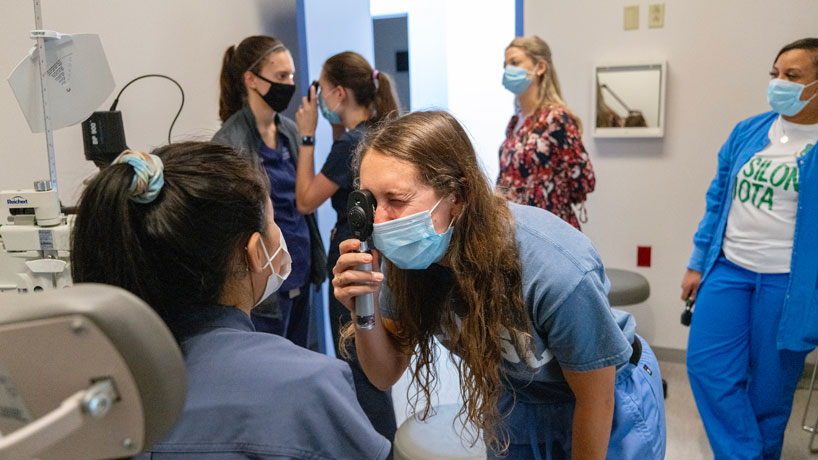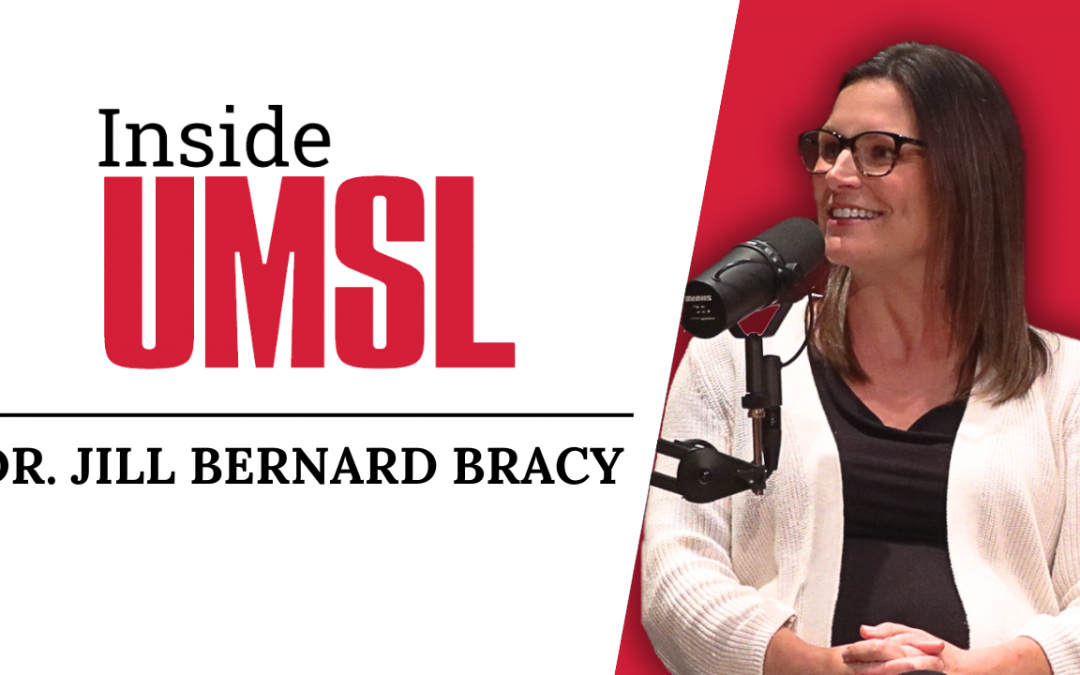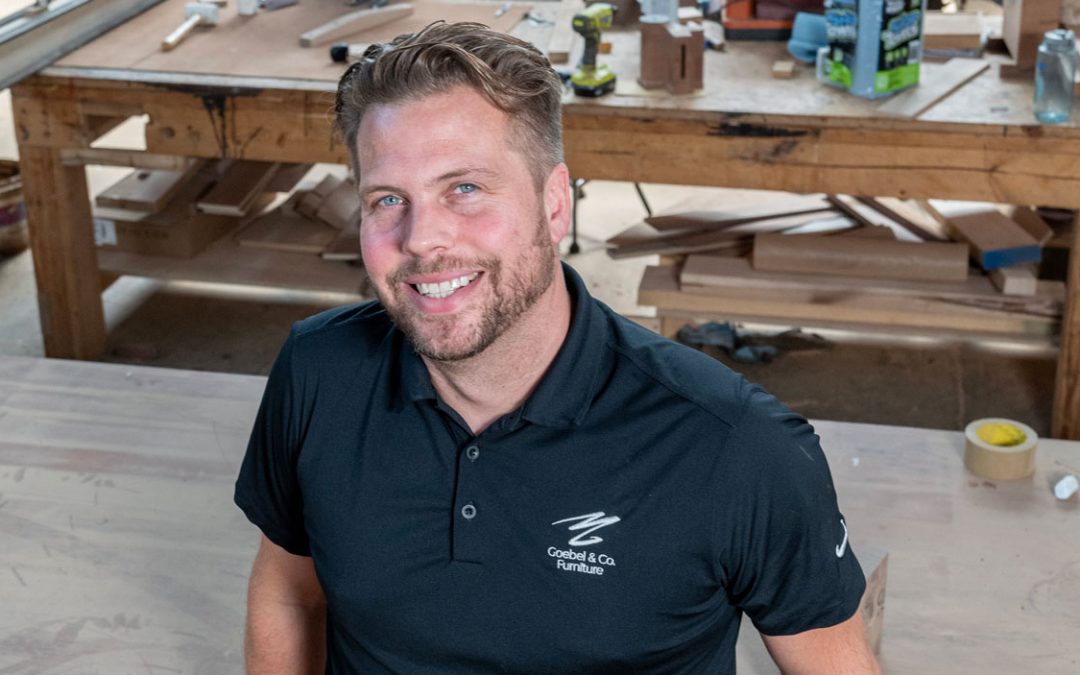
UMSL’s College of Optometry recently hosted a skills workshop for a group of students in the DNP program to learn more about eye health. (Photo by Derik Holtmann)
Earlier this month, a group of about 35 nursing students at the University of Missouri–St. Louis found themselves learning to use some medical equipment they might not have had much experience with before.
As part of an optometric skills workshop hosted by the College of Optometry, students in the Doctor of Nursing Practice program moved through four different stations set up in the Patient Care Center to learn various skills related to eye health.
They learned how to use equipment that they will likely have access to in their own clinical work, including a direct ophthalmoscope to examine the back of the eye, as well as a slit-lamp bio microscope to look at the front of the eye. A pediatric station taught the students all about eye health for kids, and at the cornea station, they learned how to treat patients with needs for urgent care, such as a scratch on the eye. Through all of the experiences, they were encouraged to think about when they could treat the issue themselves and when to refer the patient to an optometrist.
The workshop was led by College of Optometry faculty including Dean Keshia Elder, Dr. Thomas Landgraf, Dr. Linda Marks and Dr. Casey Peterson, the college’s coordinator of interprofessional education. A few third-year optometry students also helped out, playing the role of patients at various stations and demonstrating skills to DNP students.
“Our goal was first to make them aware of what we do as optometrists related to the rest of the body and then also give them some skills and background knowledge on what they should do if a patient comes to them with an eye problem,” Peterson said.
Eri Arapi, who is currently in the third year of the DNP program, enjoyed learning how the equipment functions and exactly what the optometrists are able to see when using it.
“I feel more confident, and I am able to differentiate now how the physical exam is performed as an NP,” Arapi said. “Hands-on practice is the best and that’s my learning technique, so it made me feel more confident for clinical practice.”
Peterson, who also helped plan a poverty simulation for optometry and nursing students over the summer, said she is always looking for ways to get optometry students working with students in other health disciplines. She organized a similar workshop in 2019 and had hoped to host it as an annual endeavor before the COVID-19 pandemic put a stop to those plans. She would like to continue hosting interprofessional workshops that can help students walk away with new skills.
“I hope they came away with a broader understanding of what we can do as optometrists and how much systemic health does relate to the eye, if they didn’t have that already,” Peterson said. “I hope that it just helps them feel a little more comfortable when their patients come in with an eye problem, knowing a little bit more of what steps to take or when to refer that patient out.”














